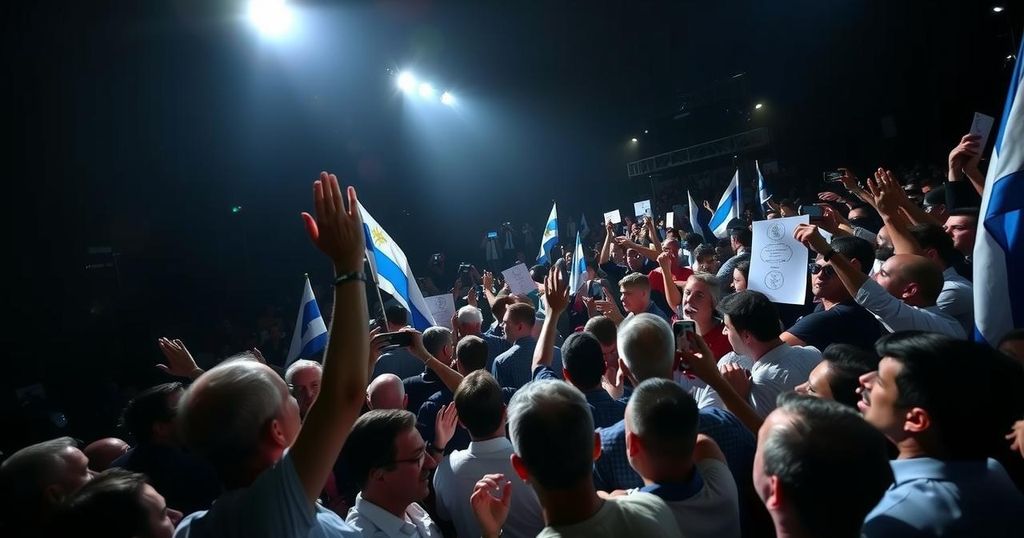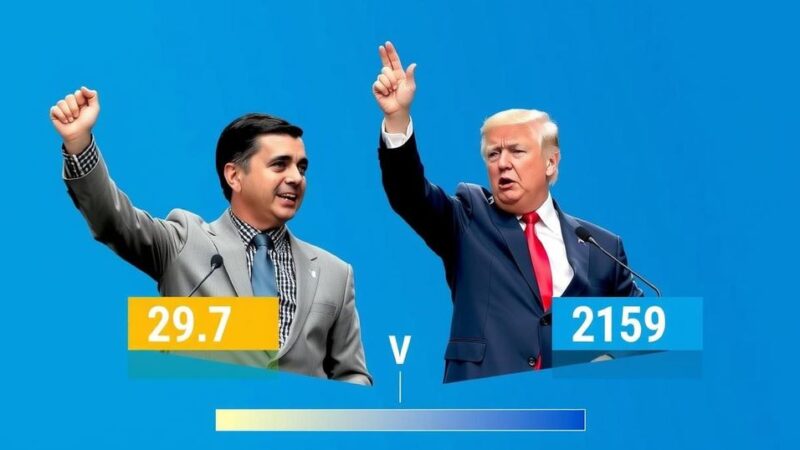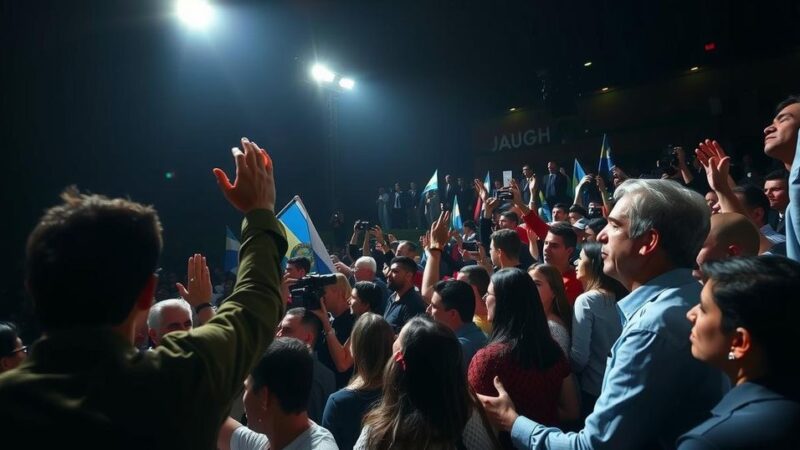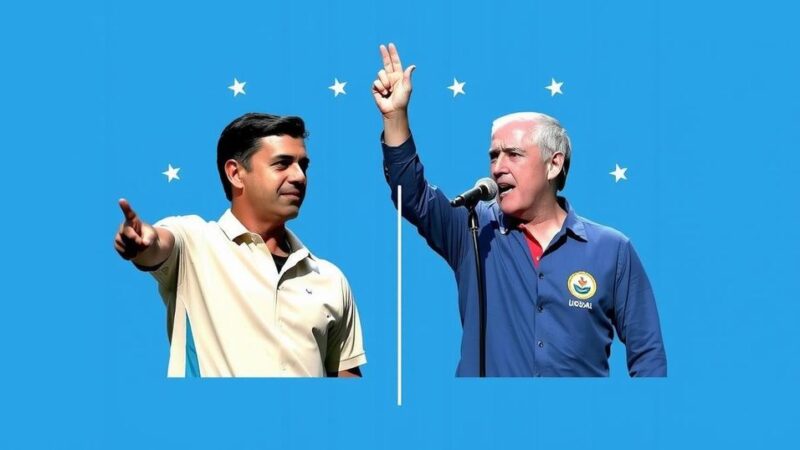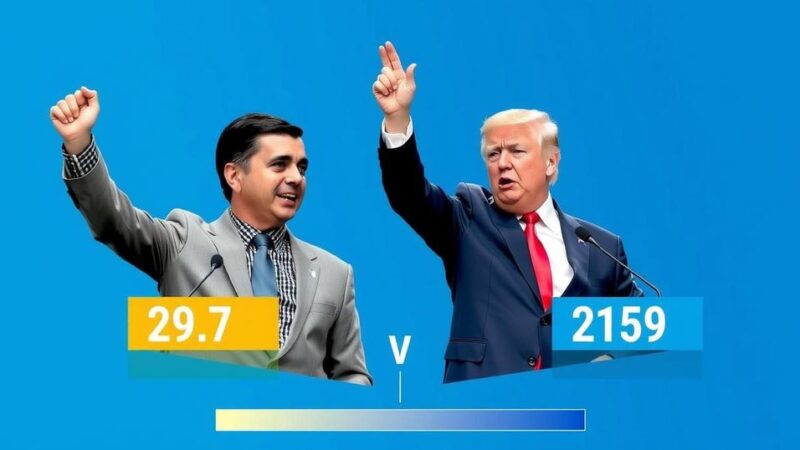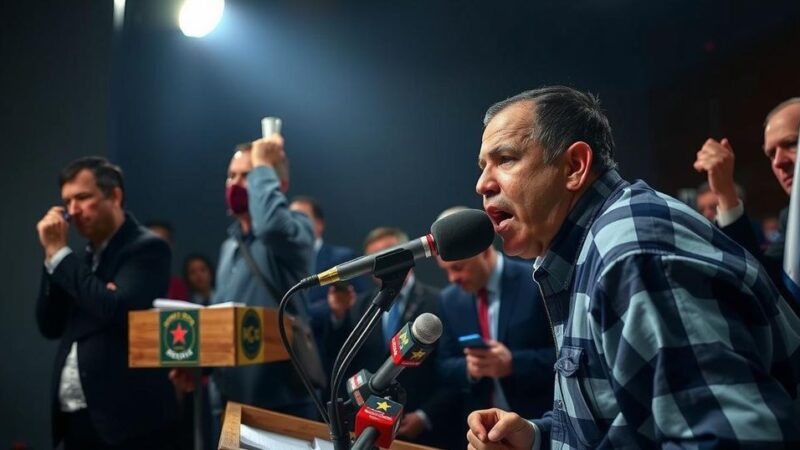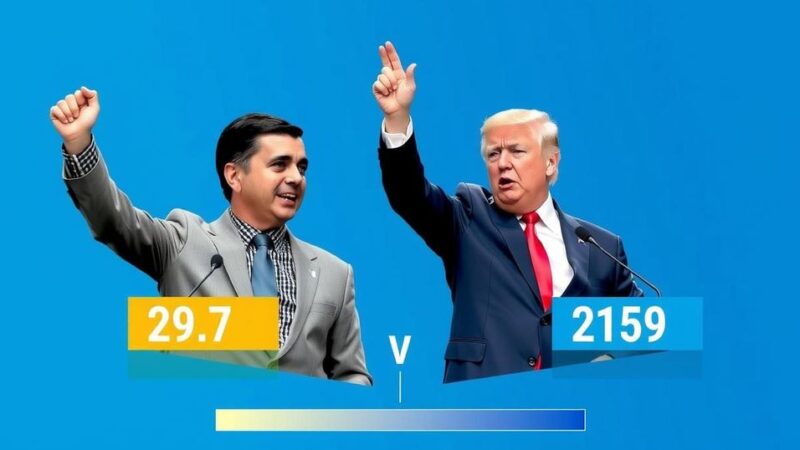Uruguay’s presidential runoff pits Álvaro Delgado and Yamandú Orsi against one another following inconclusive initial voting. Delgado aims to continue current policies while Orsi seeks to reformulate the left’s position in the country amidst concerns over crime and economic stability. Voter engagement remains low, reflecting a unique electoral climate characterized by cautious consensus rather than polarization.
Uruguay’s upcoming presidential runoff on Sunday has evolved into a competitive contest following inconclusive voting in October, compelling voters to choose between Álvaro Delgado of the National Party and Yamandú Orsi representing the Broad Front coalition. The candidates are vying for leadership after no party secured an outright majority in the first round, setting the stage for a closely contested battle. The Broad Front emerged with 44% while Delgado’s party garnered 27% of the initial votes, bolstered by additional support from allied conservative parties.
Delgado, a seasoned rural veterinarian and the current Secretary of the Presidency, aims to continue the policies established by President Luis Lacalle Pou, while Orsi, a former mayor and a proponent of environmental and social initiatives, seeks to redefine the left’s approach within the nation. Both candidates face public scrutiny regarding handling rising violent crime and the economic policies that will shape future governance.
Despite being charged with critical issues such as social spending and taxation, voter engagement is reportedly low. Nicolás Saldías, an analyst from the Economist Intelligence Unit, emphasizes the lack of extreme divisiveness in this election compared to populist movements observed in other countries, indicating a stable democratic process at play in Uruguay. As both candidates present their visions, the election underscores the prospects and challenges facing this South American nation.
Currently, Uruguay is preparing for a significant electoral event as citizens return to the polls for a presidential runoff. This comes after the first voting round failed to produce a clear winner, compelling the electorate to decide between two contrasting candidates. Each candidate represents distinct political backgrounds and objectives, reflecting the evolution of Uruguayan politics post-2019, as well as ongoing societal issues such as economic management and crime. The prior administration has set a precedent that deeply influences the upcoming election.
In conclusion, the presidential runoff in Uruguay epitomizes a crucial moment in the country’s democratic evolution. With leading candidates Álvaro Delgado and Yamandú Orsi presenting divergent policies amid a landscape marked by public apathy and crime concerns, the election highlights Uruguayan voters’ quest for reliable governance. As both candidates strive to attract undecided voters, the outcome remains uncertain yet pivotal for the nation’s future direction.
Original Source: www.clickondetroit.com
